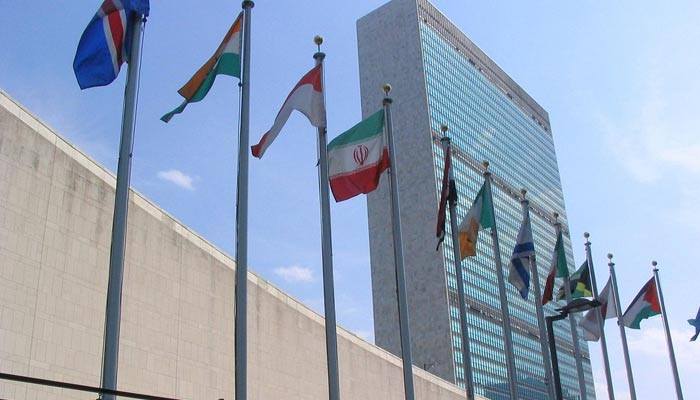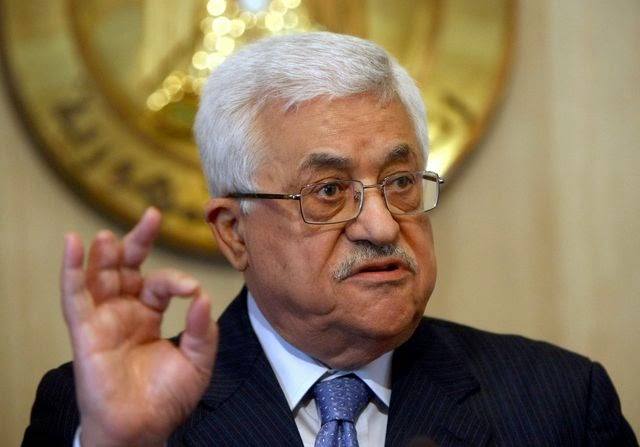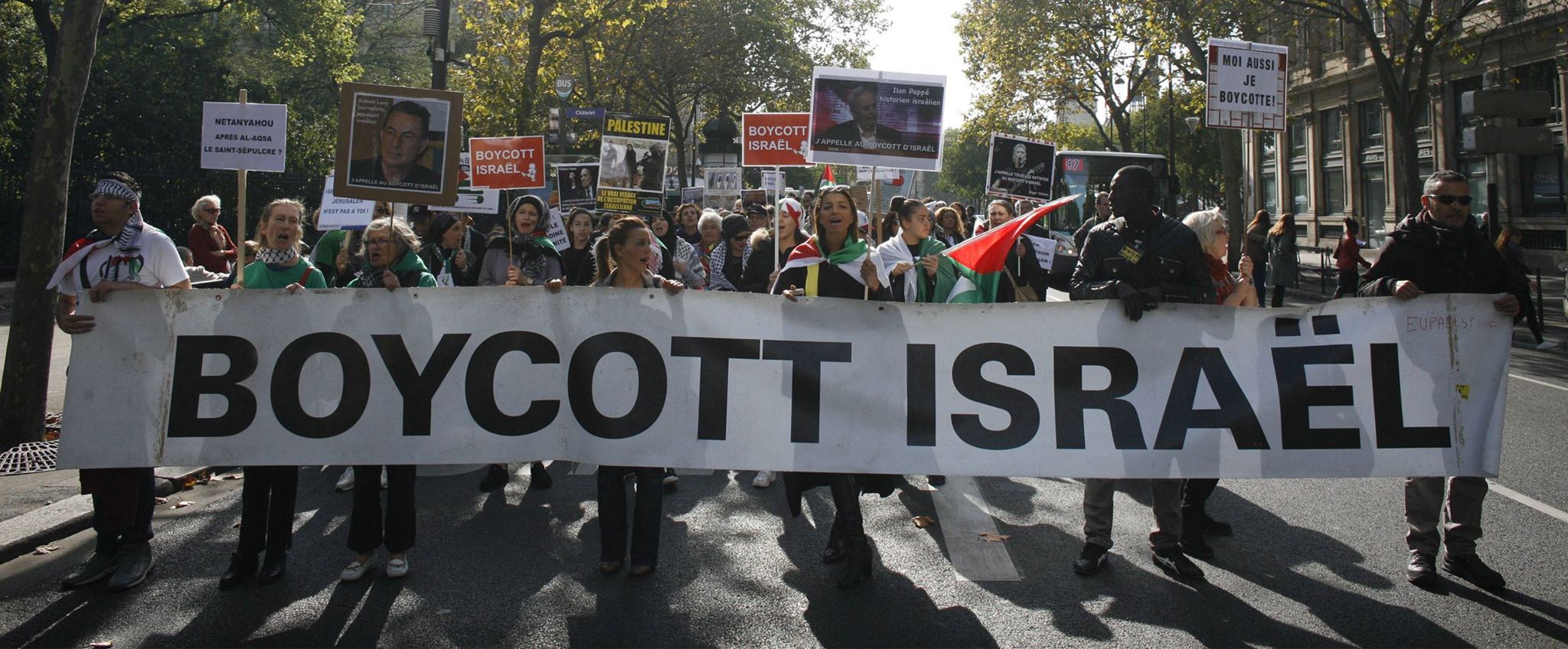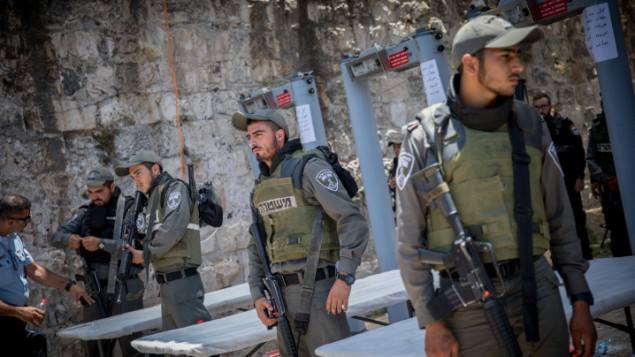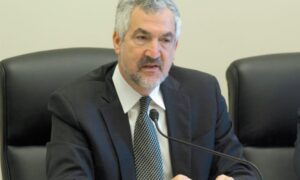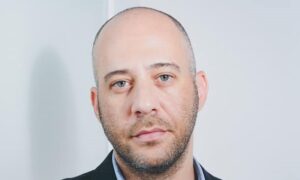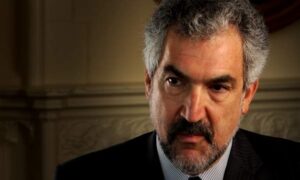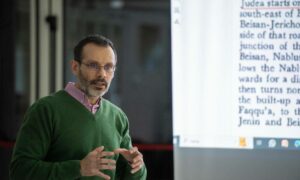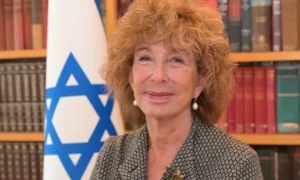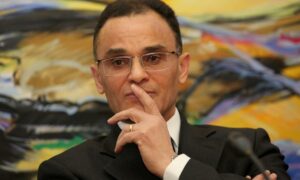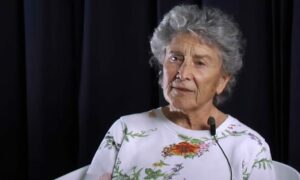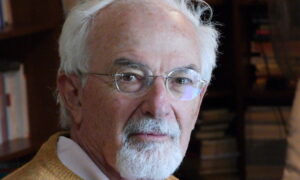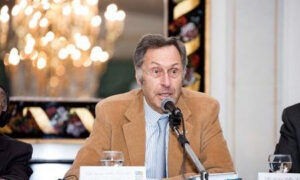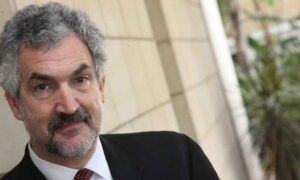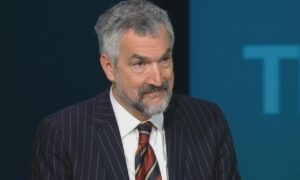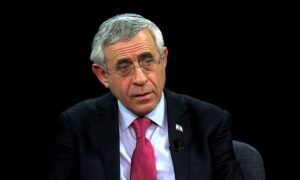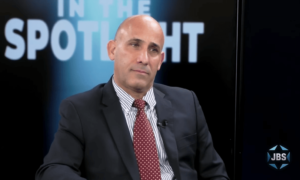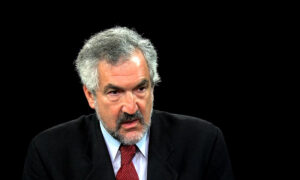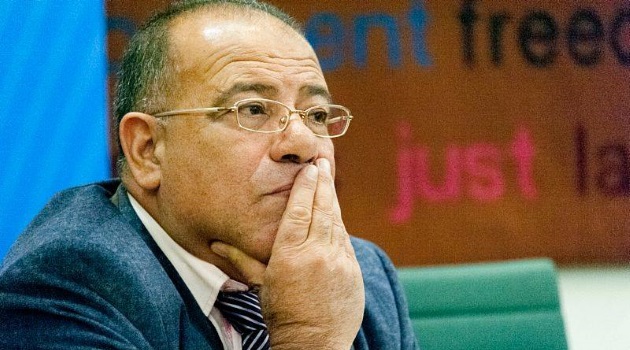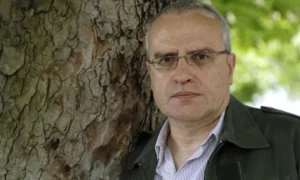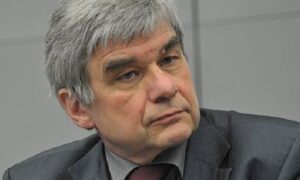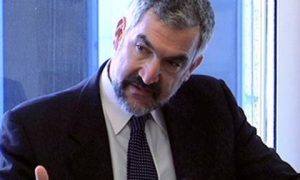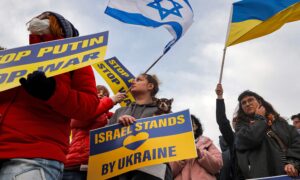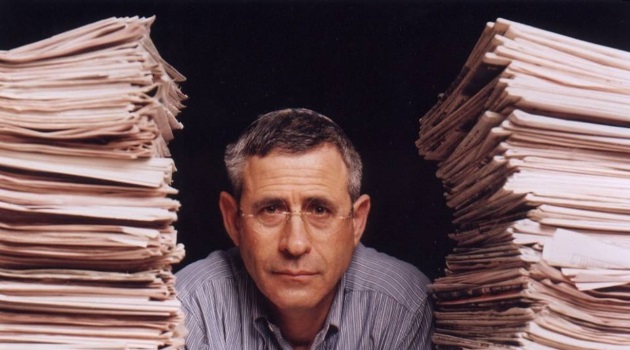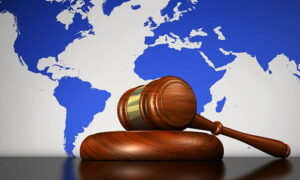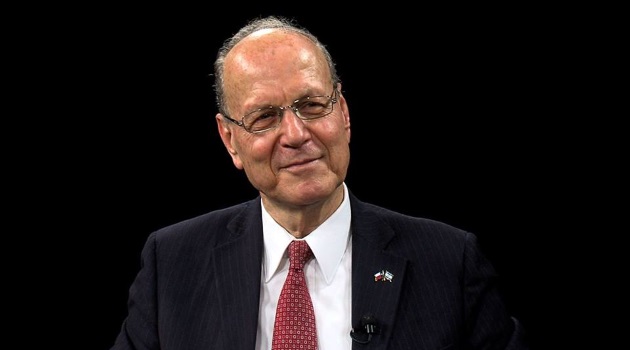You don’t expect turn of phrases when you listen to Bassem Eid. He won’t apologize when clearly and precisely he shatters before you one after the other, all the icons of the pro-Palestinan narrative: the victimization of the Palestinians by the Israelis, the willingness of the Palestinian leaders to find a peaceful solution to the most mediatized and enduring postwar conflict, the intrinsic goodness of those organizations that proclaim to fight in defense of Palestinian people rights, the evil nature of the Israeli “occupation”.
Eid, born in East Jerusalem when the city was still under the control of Jordan, has dedicated a big part of his life to defend human rights and reporting abuses, in particular those of the Palestinian Authority. In 1996, he founded The Palestinian Humans Right Monitoring Group after leaving Israeli ONG B’Tselem due to its refusal to take into account a report of supposed human rights violations by the Palestinians.
An international lecturer, political analyst and pundit of Palestinian politics and society he is acknowledged by many as the leading Palestinian human rights activist around.
L’Informale has met him in Jerusalem.
In 1919, the General Syrian Congress emphasizes that the people living in then British Mandatory Palestine actually lived in what was know as Balad esh sham (the province of Damascus) or Surya–al–Janubiya (Southern Syria). In 1974, Hafaz al Assad declared, “Palestine is not only part of our Arab nation but a fundamental part of Southern Syria”. What is your opinion?
I am a person who tries to forget the past and tries to look forward, at least for the future of our children. I think that the Palestinians exists on this land like the Jews, there is no difference about this, and as the Palestinians have the right to exist also Israel has the full right to exist. Unfortunately such a kind of statement as the one you cited, from Hafez al Assad or whoever, just add more fuel to the flames. I don’t see a statement as this one as a possible solution to the conflict, it just make it harder and harder. Since 1948 until today, I haven’t seen either that the Arabs or the Muslims have provided any kind of help to the Palestinians. There have just been slogans, and slogans and slogans. The Arab leaders have used the Palestinian case to continue corrupting their own people under the umbrella of liberating the Palestinians from the Israeli occupation.
What are the goals of the Palestinians and how are they to be achieved?
We, the Palestinians, should be more and more realistic about our goal. Are we really interested in solving the conflict or just interested in managing it? Since the Oslo Agreement of 1993, after the arrival of the PLO in the West Bank and Gaza there has been no serious evidence that the PLO or the Palestinian Authority, from Arafat to Mahmoud Abbas, have been really interested in solving the Arab-Israeli conflict. The Arab-Israeli conflict has become the major source of money for the Palestinians leaders and as it has become a huge source of income I don’t believe that these leaders will ever think seriously to find a solution to the conflict. For example, think about Gaza. After the Israeli disengagement from it in 2005, Gaza is living in a huge disaster. The situation in Gaza before the Israeli disengagement was a 100% better than it is today. Hamas is holding two millions Palestinians by force and nobody there can speak not even one word against them. We have failed on every aspect of the political level so let us try at least to survive and try to improve the economic situation. Right now I don’t believe neither in the one state solution nor in the two state solution, and you know why? Because I think that we are not mature enough for a state, so if we are not mature enough for a state, at least we want to survive and in order to do so we need an economy that works. So, this, for the moment being is the most important goal to achieve.
What is your opinion in relation to international organizations such as the United Nations, UNRWA and UNESCO, which, on different levels, operate clearly one-sidedly against Israel?
Last year in May I was invited at the United Nations to a big conference called “Ambassadors against BDS”. It was the first time I entered in the United Nations headquarter in New York. When I got to the stage to speak, the first thing I said was, “I wish I could hold the keys of this building because if I would have them I will seal it forever”. UNRWA today and the UN and UNESCO and all of these international organizations have as their main aim in relation to this conflict, not to solve it but to manage it, and the reason is simple. This is because, as I have already said, the conflict has become a huge source of income. It is clear enough that while the UN is promoting resolutions against Israel and UNESCO is doing the same thing, they are receiving funding from countries with a precise anti-Israeli agenda. When UNESCO, through its deliberations uproots Jewish cultural roots in Palestine it is the equivalent of saying that Israel has no right to exist. This brings in huge amount of money, and this is what UNESCO is waiting for. The Palestinians are the victims of these international organizations. UNESCO denial of the right of Israel in Jerusalem, the right of the Jewish heritage in Hebron will not serve me as a Palestinian, it won’t give me a state. What we Palestinians obtain from these decisions is the opposite effect. They just make things harder for any peace talks. This is not the way to bring peace. All these international organizations of which UNRWA and UNESCO are part of should start evaluating their policies towards the Israeli-Palestinian conflict because by acting the way they do they are just creating more and more obstacles on the way to any opportunity of peace between the Israelis and the Palestinians.
To what extent, according to you is religion interwoven into the Arab-Israeli conflict?
Unfortunately Muslims, including the Palestinians are trying to politicize religion because the politicization of religion is a very attractive thing for Muslims around the world and this is exactly also what Mahmoud Abbas is doing, what Hamas is doing, what Hezbollah is doing and all of the terrorists around the world who are using Islam against the Jews, are doing. The main problem is that we don’t have right now a serious, charismatic sheik or imam to come and to stand up and say, “By what you are doing you are bringing more and more tragedy upon us and other people” and this is leading me to the current situation in Jerusalem and Al Aqsa, where the Israelis have decided to put metal detectors after the terrorist attack of last Friday. Listen, if you go to the Kotel you go through electronic gates, what is the problem? While the Muslims refuse today to enter Al Aqsa through the metal detectors this means that we are trying to incite the Islamic world against Israel and unfortunately it looks like it is going very smoothly. I am sure that beside Mecca and Medina there are mosques throughout the world were you enter by going through some kind of security control, why not here? I don’t want to be killed inside Al Aqsa or outside it. I don’t want to be a shahid. I don’t want my child to be a shahid. If you kill you kill, never mind what you call yourself. This is the tragedy in my opinion and I think there is a great problem today with the Muslims non with Islam, because it seems to me that the Muslim attitude today is completely against the rules of Islam. So I wish that the Muslims will wake up one day and start realizing what they are causing for themselves.
What is your opinion of the Palestinian Authority, and in general of Palestinian leadership?
I would never trust the Palestinian leadership neither in the West Bank nor in the Gaza Strip. The main job of the Palestinian leadership is how to continue keeping the Palestinians as hostages for the sake of the Israeli-Palestinian conflict. This is the main aim. We are the hostages of our leadership we are not the hostages of Israel, not of the occupation. It is exactly the opposite. If we look today what is surrounding me here in the Middle East we will find that compared to other realities around what goes one here, the Israeli-Palestinian conflict, makes it the safest place to be. I don’t want to be in Syria, I don’t want to be in Iraq, I don’t want to be in Yemen. The main problem is the blind eyes of the international community in relation to the Palestinian leadership. It looks like that the international community wants a sort of revenge against the Jewish people by using the Palestinians and the Palestinian leadership, it looks like Europe is going backwards to its history, because Antisemitism was founded in Europe not in the Islamic countries. Europe today is giving more and more power to the Palestinian leadership for it to continue to refuse any kind of deal with Israel and it looks like that the Palestinians have no choice right now until Abbas will go away. I have a little bit of hope that after Abbas probably our situation will get better. I hope that a young charismatic serious and courageous Palestinian leader will come after Abbas and that probably will give a great hope not only to the Palestinians but also to the Israelis.
Mahmoud Abbas, Marawan Baraghouti, Khaled Mashal, Yahya Sinwar. These are some of the names of some of the leaders of the Palestinian opposition to Israel. This is what the political market offers in terms of options and eventual interlocutors. By the end of the day isn’t Abu Mazen, among them, the most preferable option?
I don’t think that the any of the names you have mentioned can represent a real future for the Palestinians. To me the main option today for an alternative leadership for the Palestinians is probably Mohammed Dahlan, who recently made a very interesting deal with Egypt in relation to Gaza, a deal that was accepted by Al Sisi and by Hamas. This means that Mohammed Dahlan will control the Rafah passage between Gaza and Egypt, not Hamas, and if this will happen the Rafah passage will be probably open for twenty four hours a day. This will progressively weaken Mahmoud Abbas in the West Bank, because from what it seems today, the relationship between Abbas and Al Sisi is not a 100% good. Abbas is very upset about the fact that Al Sisi is allowing Dahlan to enter in Cairo and even to conduct a press conference over there. So, my hope is that this deal will be finalized as the Egyptian government wants to hit two birds with one stone. The first bird is that of keeping the situation calm between Hamas and Israel while the second one is to allow Al Sisi to fight against terrorism without Hamas intervention in Sinai. If this deal will succeed, and I believe it will, the situation in Gaza will improve.
You are an outspoken critic of the BDS movement which is quite popular in Europe and has been doing an effective campaign in campuses in the USA. Many people think that the BDS is fighting for the right of the Palestinian people. This is the opposite of what you think. Would you like to specify?
These people are trying to benefit themselves instead of benefiting the Palestinians, they have found for themselves a job forever. Boycott will never bring peace. The BDS is not really seeking any kind of peace between the Palestinians and the Israelis, what they are trying to accomplish is one important mission, declaring that Israel has no right to exist. This is what they are working for. As a consequence of the closing of factories in the West Bank, thousands of Palestinians workers have been kicked out. I haven’t seen any instance of the BDS helping Palestinian workers who have lost their job as a consequence of boycott, of moving the factories from one place to another one. I haven’t seen the BDS trying to cover the medical insurance of those workers who lost their jobs. Unfortunately some Palestinian NGO’s are supporting the BDS because Europe put it as a condition, “If you want us to fund you you must obey our policies and to sign in favour of the BDS”. This is exactly what Omar Barghouti is doing today around Europe, collecting money for his organization. The good news is that BDS policy has no real effect on Israel. If you succeed in closing one small factory or another small factory, be it, but these are certainly not the main source of income for the state of Israel. Israel economy is not based on Coca Cola, or on Soda, Israel has technology, has military equipment, has start ups. Three months ago there has been an agreement signed between Israel and Jordan according to which Israel will export natural gas to Jordan for 15 billions dollars. Where is the BDS? Show me the BDS in Jordan. Egypt is going also to sign another agreement with Israel. Where is the BDS of Egypt? The BDS is very lucky, and for one simple reason, it is operating in Europe and in no Arab country. If they will operate in an Arab country they will be put in jail for life. They know exactly where are the most comfortable places for them, Europe and the campuses in the USA. I met a lot of these people in the United States, they demonstrated against me, they published leaflets against me, they disturbed my lectures from time to time. These people just don’t believe in the freedom of speech, they hate the freedom of speech. They think that they are the only ones who have the right to speak, but that I, as a Palestinian that doesn’t share their view, have no right to speak. My big question to the BDS is, who authorized you to speak on my behalf?
During the First Intifada you were a senior field researcher for B’Tselm, the Jerusalem based independent NGO whose aim is, like that of another NGO, Breaking the Silence, to document supposed human rights violations by Israel in the Israeli occupied territories. What is your opinion today about these organizations?
These organizations today have their own precise political agenda. They want to satisfy their funders rather than the Palestinians and their rights. I didn’t see any evidence that organizations like B’Tselem or Breaking the Silence have done anything positive to change the current situation. B’Tselem has been operating from 1989, and what has been its big achievement? Zero, just zero. Their main agenda is a political one with the cover up of human rights. For the most it is European policy. Just imagine that Europe tomorrow decides to stop funding these organizations like B’Tselem, Breaking the Silence or the BDS, what will happen of the people working for them? They will become jobless. Germany is one of the biggest founders of B’Tselem. It provides more than half a million euro a year, and I am talking of just one funding country, not to mention what comes from France, Spain, the UK. B’Tselem today looks very much like an Israeli UN. It is funded by governaments, not by fundations. This is the issue. One of the sources of the Arab-Israeli conflict is the European money. If this flow of cash from Europe and also from the US will stop, I am very positive that the situation will change for the better.
What option do you endorse for a solution to the conflict, a one state solution, a two state solution, emirates, the incorporation of part of the West Bank into Jordan and Gaza into Egypt?
To return to the pre ’67 status which means that the West Bank will be annexed to Jordan and Gaza will be annexed to Egypt is unrealistic. Neither of these countries will accept it. Even the confederation between the Palestinian state and Jordan has been rejected. The Palestinian Authority today is much more interested in a three state solution for two people. Hamas is fighting for its own Islamic Emirate in Gaza, Abbas is fighting for his own empire in the West Bank and then there is the state of Israel. This is how we have been living in the past ten years since Hamas took over the Gaza Strip in 2007. Forget for ever that any unity or reconciliation will take place between the West Bank and Gaza. The situation is very difficult and this makes any solution even more difficult. We, the Palestinians, need to wait at least for twenty years and maybe, by then a charismatic leader will come forward from the coming generation and will take new initiatives, but with the leadership we have today no peace initiative will come out.
When we talk about Palestinian society what are we exactly talking about?
We are essentially talking about tribes. In 1977 when Sadat visited Israel he gave an interview to one of Israel’s major newspapers, Yedioth Ahronot. One of the questions that was asked to him by the interviewer was how many Arabs countries existed in the world. Sadat answered, ‘One, the Republic of Egypt’, so the journalist asked, ‘What about the others?’ and Sadat said, ‘The others are tribes with flags’. Each Palestinian movement has its own flag, the PLO, Fatah, Hamas, whatever you want. Yes, Sadat was right, we are tribes with flags.
According to you, what are the main problems that affect Palestinian society?
The main problems stem from culture and education. In our culture we don’t have an education that teaches peace or the acceptance of the other, we don’t have a civil society. These are concepts coming from Europe, from the United States, in other words, from the West, but they don’t belong to us. So, as I said, culture is the major problem and another one, which is also deeply connected to culture, is that Palestinian society is based on the Quran instead than on the realities of daily life.


